Policy papers
The European Microfinance Network (EMN)
The European Microfinance Network provides policy papers and advocacy resources to support financial inclusion and strengthen microfinance institutions (MFIs) across Europe. These materials help shape policies, improve lending practices, and ensure underserved communities have access to financial services.
Through policy papers, EMN offers insights and recommendations that guide policymaker and practitioners in fostering a more inclusive financial system. Its advocacy efforts facilitate engagement with European institutions, promoting regulations that support microfinance.
By sharing best practices and case studies, EMN helps MFIs and the whole microfinance community refine its strategies and enhance its impact. In addition, working groups and initiatives encourage collaboration among practitioners, policymakers, and researchers to develop effective financial inclusion strategies.
EMN also provides guidance on crisis response and resilience building, ensuring MFIs can continue to serve their clients during economic challenges. These resources collectively contribute to a stronger, more inclusive financial landscape.
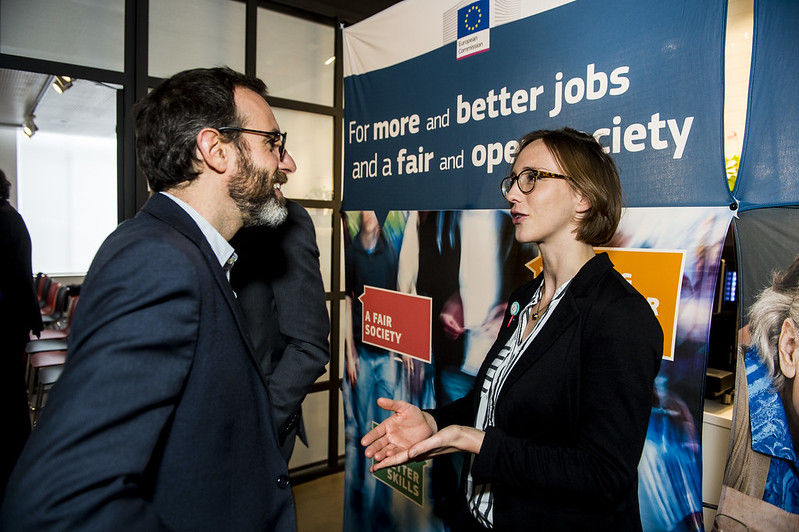
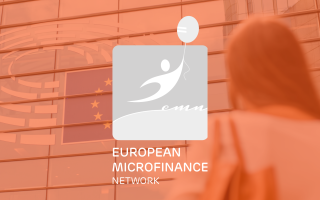

- Alicia Moreno
This 13th edition of the Survey on Microfinance in Europe, produced by the European Microfinance Network (EMN) and the Microfinance Centre (MFC), draws on data from 198 microcredit providers operating across 30 European countries in 2024.
While the primary focus is on EU-27 countries, the survey also includes data from candidate and potential candidate countries, offering a comprehensive picture of the sector’s European footprint. This edition places a particular emphasis on social outreach to vulnerable groups and microbusinesses.
Microfinance overview surveys
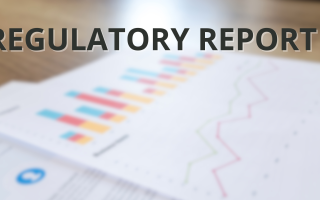
- Alicia Moreno
In this publication, the European Microfinance Network describes the latest legislative developments in Greece regarding microfinance.
Regulatory reports

- Alicia Moreno
Regulatory reports

- Alicia Moreno
Regulatory reports
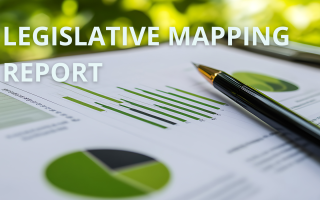
- Martina Volpi
Regulatory reports serve as fact sheets that offer an overview of the legislative frameworks related to microcredit provision in Europe by non-bank financial intermediaries.
These reports address several key thematic areas:
- Regulation of lending activities
- Supervisory frameworks for non-bank lending
- Products, incentives, and support
- Development of the existing framework for non-bank microcredit provision
- Inclusive entrepreneurship and microenterprise development
The information in the reports is sourced from contributions made by EMN members operating in various countries. The current report has been updated as of November 2025.
Regulatory reports
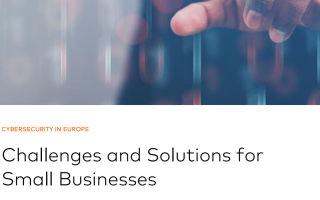
- Martina Volpi
This focus paper explores the growing cybersecurity challenges facing Europe’s Micro and Small Enterprises (MSEs), which play a vital role in economic growth but are increasingly vulnerable due to rapid digitalisation and limited resources. While digital transformation has helped MSEs remain competitive (particularly during crises such as the COVID-19 pandemic) it has also exposed them to a broad spectrum of cyber threats, including ransomware, phishing, malware, DDoS attacks, and supply chain breaches. These threats are intensified by a lack of cybersecurity expertise, dependence on costly or ill-suited technology solutions, and constrained budgets, all of which can result in significant operational and financial consequences.
The paper underscores the urgent need for comprehensive policy measures and targeted support from EU authorities and National Coordination Centres (NCCs). It recommends expanding access to practical training, increasing funding, and developing user-friendly cybersecurity tools to foster a strong cybersecurity culture and safeguard both individual businesses and the broader digital ecosystem.
Papers
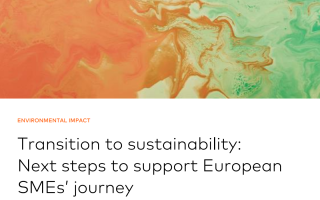
- Martina Volpi
This paper focuses on the role of micro and small enterprises (MSEs) in the EU’s environmental transition. It considers the obstacles they face and possible solutions to ensure a sustainable and prosperous transition. MSEs represent a significant proportion of EU businesses, micro enterprises alone accounted for 93.6% of all European enterprises in 2023, employing nearly half of the enterprise workforce. Despite their size, MSEs are responsible for a considerable proportion of environmental impact. According to OECD data, they contribute to 40% of greenhouse gas emissions in general, and half of industrial pollution.
While a growing number of MSEs are committed to improving sustainability, only 42% are implementing at least five resource efficiency measures, such as saving energy and minimising waste. Access to finance remains a critical barrier: 55% of SMEs cite it as a substantial obstacle, and 70%
indicate a need for additional financial support to accelerate their green transition. To address these challenges, the paper recommends (1) to increase MSEs’ awareness and knowledge of support schemes and technical expertise, (2) to simplify regulatory and reporting requirements and (3) to improve financial support through targeted financial instruments and incentives.
The paper highlights the importance of a tailored support tool, such as a one-stop-shop platform, to provide MSEs with the necessary resources and facilitate their transition to a more sustainable model.
Papers

- Martina Volpi
In 2024, the European Microfinance Network (EMN) expanded its membership across Europe, strengthened its partnerships with relevant stakeholders, and continued to promote financial and social inclusion. By representing the microfinance and social economy in Brussels, EMN reasserted its position as the leading voice of the sector in Europe.
This report provides an overview of the main activities carried out by the EMN team and its partners during the previous year. It outlines EMN’s key objectives, which include ensuring fairer and inclusive finance for all, supporting underserved groups, and developing sustainable solutions for the microfinance sector.
Annual report
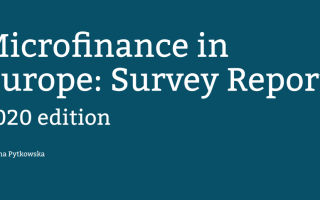
EMN Position
Papers
01 Preparation for the 2021-2027 multiannual financial framework
EMN/MFC followed the design and negotiation phases of this budget cycle and took part in the stakeholder expert group that the EC consults when planning the Multiannual Financial Framework (MFF), to ensure the financial instruments and the programmes are most efficiently designed to support the microfinance actors.
The long-term EU budget, roughly 1 trillion Euro, was agreed at the Special session of the Council of the European Union, 17-21 July 2020. The new MFF will cover seven years between 2021 and 2027 and will also be the main instrument for implementing the recovery package to tackle the socio-economic consequences of the COVID-19 pandemic.
Microfinance will benefit from the programmes that will be called InvestEU (for centralised support) and ESF+ (for decentralised support).
- Proposals on continued and improved EU instruments to support the European microcredit sector
- Concept note on microfinance sourcing guarantee
- EMN response to GECES consultation on InvestEU
- EMN-MFC response to GECES Sustainability Proofing consultation in August 2019
- EMN-MFC response to GECES Investment Guidelines consultation in August 2019
02 Actions to support Microfinance sector during COVID-19 context
Due to the pandemic, the risk of exclusion for microfinance clients has worsened drastically. On top of this, COVID-19 put some of the European microfinance institutions under severe financial and operational pressure. Despite this, MFIs have been showing their resilience and have been implementing several measures to help their clients. EMN has been sharing all these measures with DG EMPL since March 2020 on an ongoing basis and continues carrying out this exercise now in post-crisis context. Also, EMN started compiling public measures, concretely fiscal, monetary, social and employment initiatives, launched by governments of the EU countries to support the resilience of MFIs and their clients.
EMN has taken a very proactive role, advocating to the European institutions to pass amendments on the EaSI programme to be more flexible and adapt it to these difficult times, as well as demanding additional financial resources for the sector to overcome the pandemic economic and social consequences.
- EMN-MFC Letter to the EIF and DG EMPL (April 2020)
- Response from EIF about EaSI Guarantee amendments as COVID support measures
- EMN-MFC Letter to Commissioner Nicolas Schmit (April 2020)
- Response from Commissioner Nicolas Schmit
- EMN-MFC Letter to European Commission President Von der Leyen (July 2020)
- Response from European Commission President Von der Leyen
03ESF and Microfinance, working together for inclusive entrepreneurship
The objectives of the European Social Fund include improving employment and social inclusion. These are core to the mission of the microfinance sector, and microfinance institutions have a history of expertise in achieving these objectives. This makes microfinance institutions perfect partners for ESF managing authorities seeking to roll out programmes encouraging entrepreneurial skills, and to lower the barrier to financial inclusion.
EMN has developed a number of Policy Notes exploring particular topics that demonstrate the value of closer partnerships.
04 Costs and pricing of microcredit
05Regulatory framework for the creation of microenterprises and self-employment
Member states each have their own approaches to how they empower entrepreneurship and self-employment. In some states it is a higher priority than others, and there is a lot of room for improvement across the continent, which also means the European institutions have an opportunity to lead the direction of upward convergence here.
EMN makes a number of suggestions that would be a strong starting point for improving the inclusiveness of entrepreneurship across Europe in its Note to DG GROW below. At the same time, the OECD produces a regular, thorough, report that gives country-specific policy recommendations for identifying and boosting excluded target groups.
06EU definition of microfinance and microcredit
The EU definition for microfinance sets an important precedent for the member states. Over the past decade, the EU definition has seen strong improvements to be more in line with EMN/MFC suggestions. However, there is more work to be done to reflect the essentially social and inclusive nature of microfinance, and to drive for more harmonisation of national definitions across Europe.
A full account and reasoning behind the EMN/MFC proposed definition can be found in the document below.
07Close the funding gap for the microfinance sector and microfinance in the Capital Market Union
Though the microfinance industry has been rapidly growing according to the overview surveys data carried out in the past years, a study produced by evers & jung has suggested that the current size of the microfinance industry is still only covering a fraction of the potential demand. Policymakers, investors and microfinance practitioners must work together to address this gap through a combination of sourcing new funds, and marketing them effectively.
Beyond identifying this funding gap, one of the main initiatives at EU level aiming to increase access to finance is the Capital Markets Union (CMU) – a series of measures proposed to make the EU a single market for capital
Here is selection of good practices in advocacy at national level from EMN members.
To access the Good Practices, please click on the titles below.

